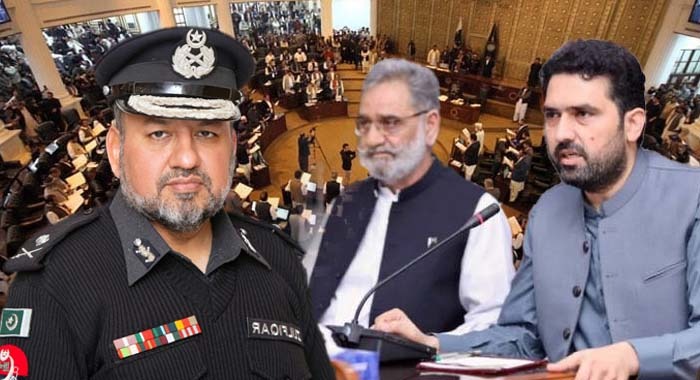Barely days after taking oath as Khyber Pakhtunkhwa’s new Chief Minister, Sohail Afridi made a decision that has left the province’s police force more exposed than ever — he returned bulletproof and bombproof vehicles to the federal government. The move, widely seen as a political stunt, was discussed during the KP Assembly’s Security Committee session, where the Inspector General of Police provided a grim briefing on the force’s desperate state. The vehicles were intended to protect officers on the front line in the province’s ongoing war against terrorism, yet Afridi’s early decision prioritised optics over officer safety.
Just days later, a devastating blast in Hangu claimed the lives of SP (Operations) Asad Zubair Khan and two of his colleagues. The timing was cruelly symbolic — while the police risked everything in a province under siege, their chief minister seemed more concerned with political theatre than the lives of those who serve under him.
The IG’s Own Admission: KP Police Can’t Fight Terror Without The Army
The irony is that Afridi’s own Inspector General of Police, briefing the Security Committee, painted a grim picture of the province’s counter-terror readiness. He told lawmakers that the police simply do not have the resources to confront terrorism on their own, and that without the army’s support, control over militant activity is impossible.
According to the IG, KP has a total police strength of about 130,000, out of which 20 to 30 percent are deployed for VIP security. That leaves barely 80,000 active personnel to fight a war spread across some of the most volatile regions in the country. He lamented that the police face a shortage of vehicles, lack modern equipment and technology, and often do not even have proper offices or police stations in several districts.
More strikingly, the Counter-Terrorism Department remains undermanned and under-equipped. The budget allocated to modernise the police, the IG noted bitterly, is “less than the cost of building a ring road.” His statement was a confession of systemic neglect — one that exposes the hollowness of Sohail Afridi’s posturing.
Billions Spent, No Answer Given
The federal government has reportedly provided between six and seven hundred billion rupees over the years to support KP in its war on terror. Federal officials have repeatedly asked, both publicly and in closed-door meetings, how this massive sum has been utilised. Yet, when the new chief minister returned the federally supplied vehicles on his very first or second day in office, he offered no clarity on how those funds had been spent — or why the police still lack basic protective gear and transport.
The silence from the KP government has only deepened suspicion that political gain has taken precedence over institutional reform. If the vehicles were indeed substandard, where is the technical report proving it? Where are the replacement plans? And if not, then the act of returning them was nothing short of reckless — a gesture that has already cost lives.
The Larger Failure
The recent session of the Security Committee further revealed an unsettling truth: despite ongoing militant threats, the government is still debating mechanisms to hold high-profile terrorists and designing “targeted operation” frameworks involving multiple stakeholders. Instead of strengthening operational readiness and providing modern resources to the police, the administration is mired in procedural indecision.
Proposals were floated to create committees before every targeted operation to “minimise civilian casualties,” which, while noble in intent, underscores the paralysis of decision-making at the top. In a province where police officers are dying in ambushes and suicide attacks, such bureaucratic exercises are a luxury the state cannot afford.
A Fatal Contradiction
Sohail Afridi’s decision to return life-saving equipment while his own police chief admits to resource collapse is not just poor governance — it is moral negligence. It exposes the widening gulf between political rhetoric and ground reality in KP. Each fallen officer is a reminder that security cannot be managed through slogans or point-scoring with Islamabad.
If the chief minister is serious about leading a province under fire, he must first answer the fundamental question that even federal officials have started asking: where has the money gone, and why are our police still dying unprotected?





